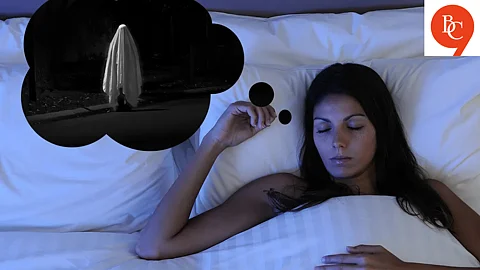

But what happens when you start seeing weird dreams that don’t seem connected to your day-to-day events at all? Strange symbols, surreal scenarios, or unexplainable feelings may flood your sleep. Why do these seemingly random, odd dreams occur?
What do they mean? Let’s explore.
What Are Dreams ?
Dreams are mental experiences occurring during the Rapid Eye Movement (REM) stage of sleep, when your brain is highly active. Scientists believe dreaming helps process emotions, consolidate memories, and maintain mental health.
Usually, dreams draw on memories and daily experiences — like conversations, fears, or tasks you had. But dreams can also mix and match fragments of your subconscious, creativity, and even random brain activity.
Why Are You Seeing Weird Dreams Unrelated to Daily Life?
Here are some common reasons you might experience unusual, seemingly unrelated dreams:
1. Subconscious Processing
Our brains don’t just replay daily events; they process emotions and unresolved thoughts. Weird dreams might reflect deep fears, desires, or conflicts you aren’t consciously aware of. They come disguised as strange stories or symbols.
2. Stress and Anxiety
High stress levels, anxiety, or trauma can cause your brain to “shuffle” its usual dream themes. You may see bizarre, unsettling, or illogical dreams as your mind struggles to work through emotional turmoil.
3. Changes in Sleep Patterns
Interrupted or poor sleep can increase vivid or strange dreams. For example, sleeping after a nap, changing your sleep schedule, or insomnia can cause your brain to enter REM sleep differently, triggering unusual dream content.
4. Creativity and Imagination
Dreams can tap into your creative mind. Even if you aren’t consciously thinking about something, your brain can generate novel images and stories — sometimes bizarre and symbolic — simply as mental exercise.
How to Manage and Understand Weird Dreams
Reduce stress: Meditation, exercise, and relaxation techniques improve sleep quality and reduce anxious dreaming.
Maintain a regular sleep schedule: Consistent bedtime routines help stabilize REM cycles.
Limit screen time before bed: Blue light can disrupt sleep and increase vivid dreams.
Avoid stimulants: Cut back on caffeine, nicotine, or alcohol close to bedtime.
Seek professional help: If nightmares or disturbing dreams persist, a sleep specialist or therapist can provide guidance.
Dreams are windows into the mysterious workings of our minds. Weird, unrelated dreams may seem confusing but often serve a deeper emotional or psychological purpose. They remind us that sleep isn’t just rest — it’s also a rich, complex mental landscape where your brain processes life in unexpected ways.
